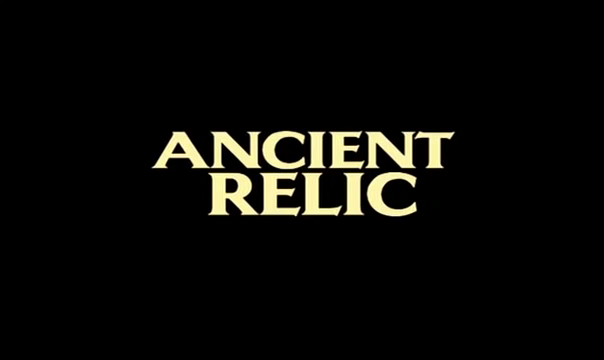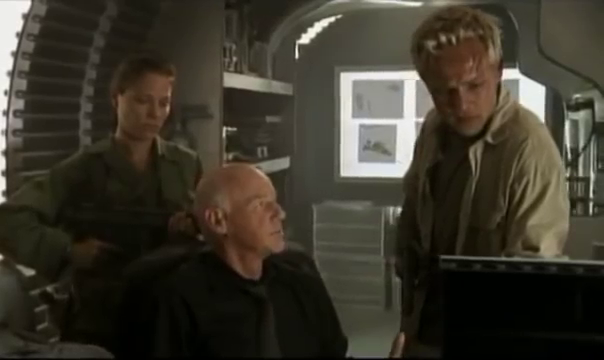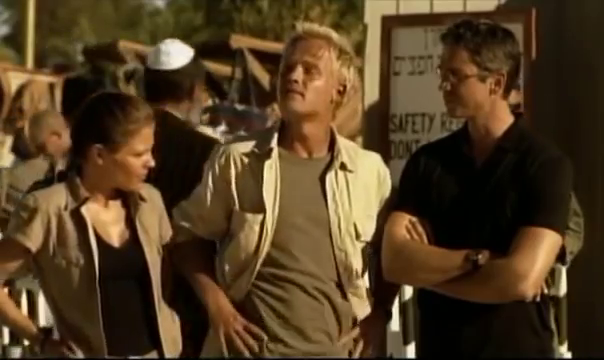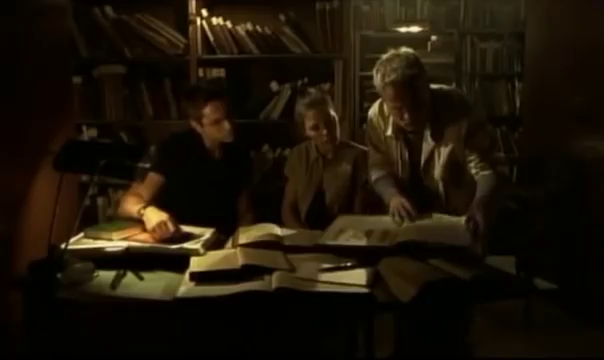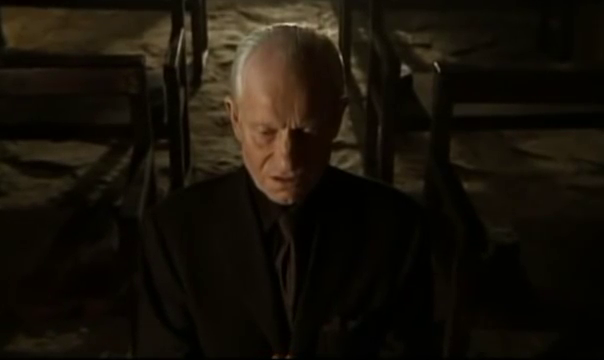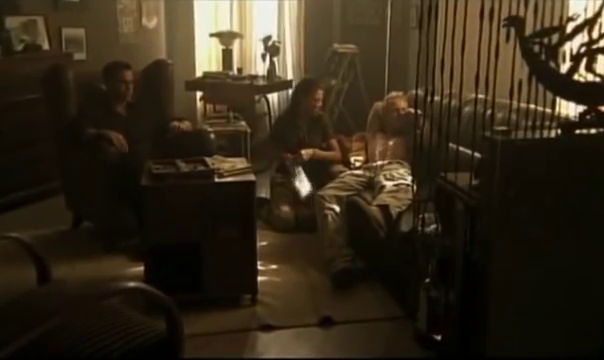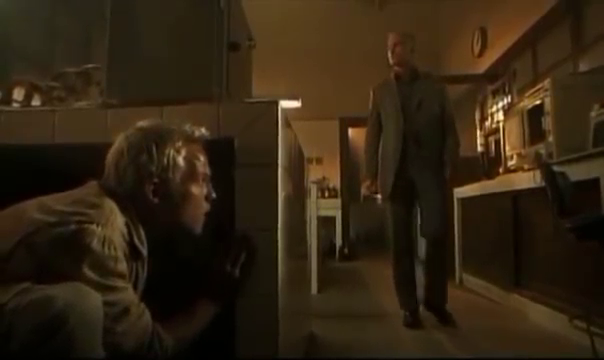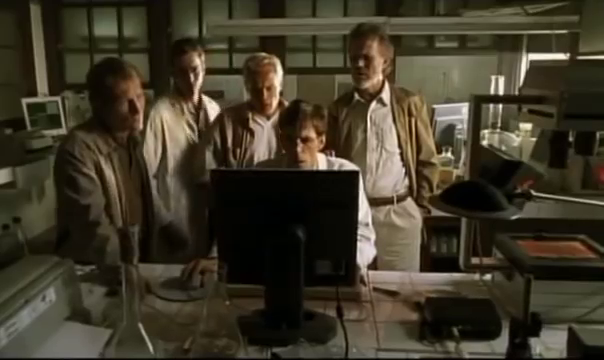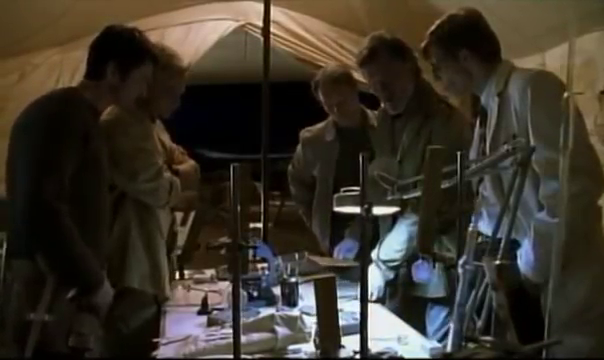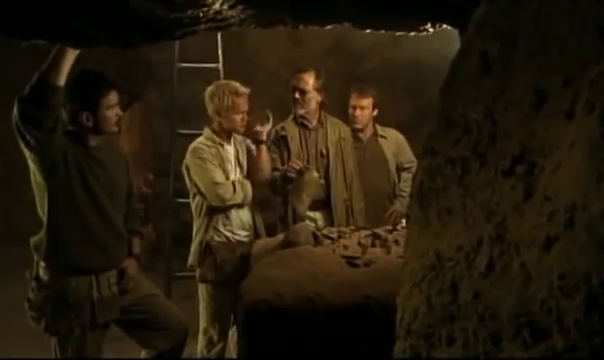-
#659 – Riddler’s Moon (1998)
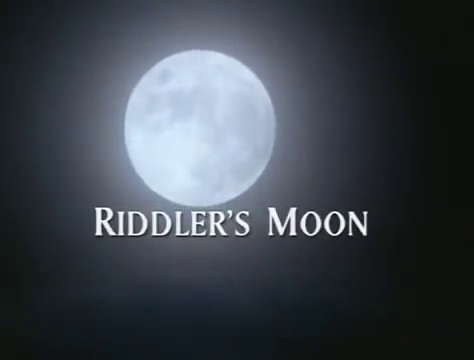
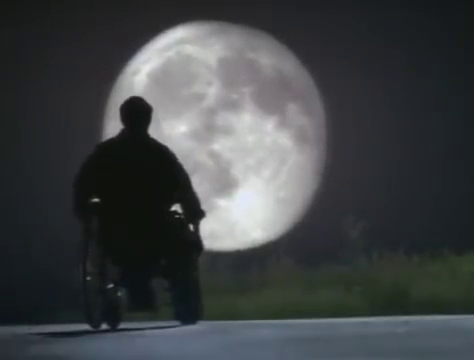
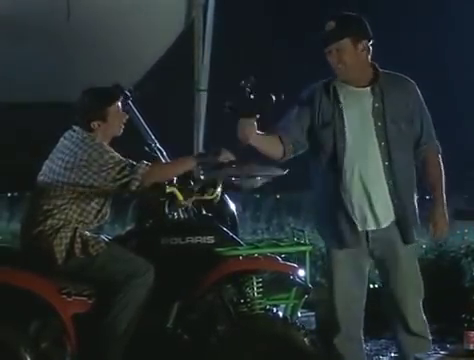
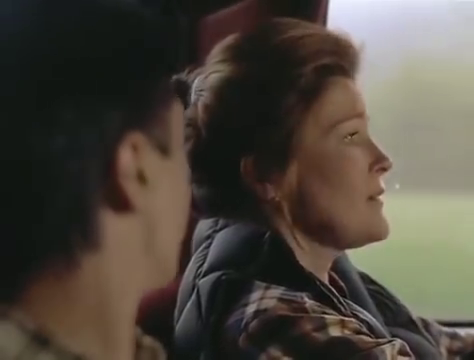
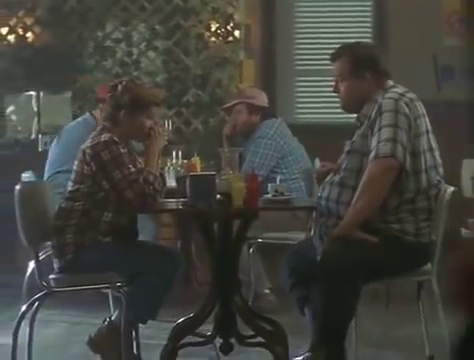
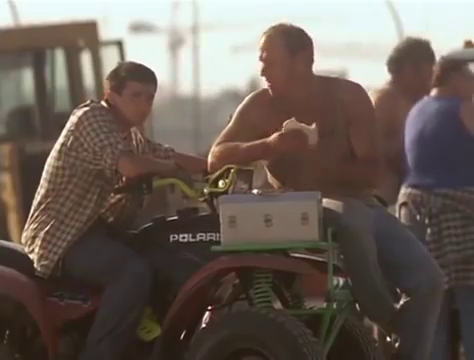
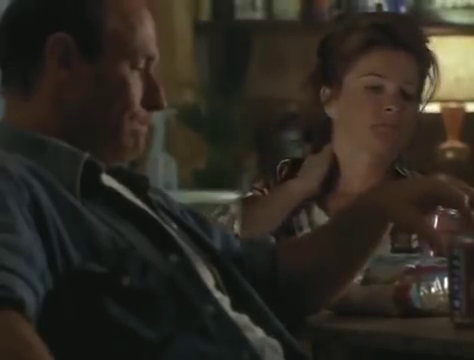
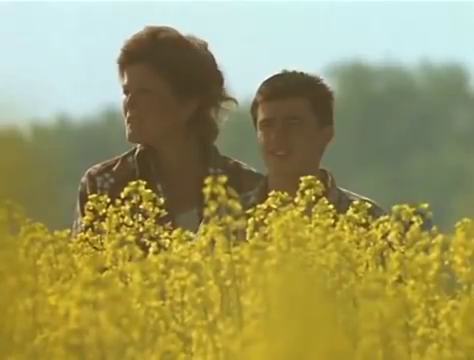
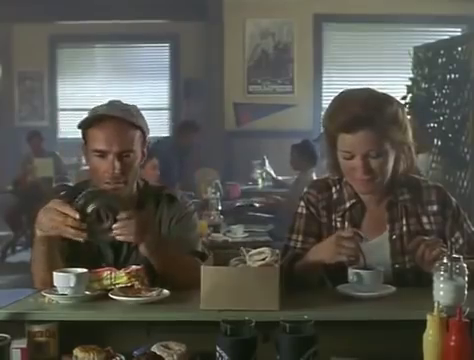
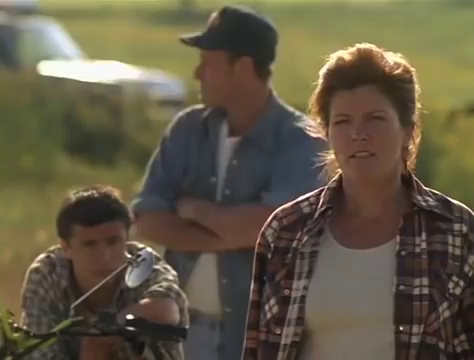
Riddler’s Moon (1998)
Film review #659
Director: Don McBrearty
SYNOPSIS: The farmers of Indiana have been plagued by a mysterious plague in their soil that poisons their animals and prevents any crops growing. When Elias, the son of one of the farmer’s, has a vision about a bountiful crop being planted in one of their fields, his Mother is reluctant to believe it, but sure enough, Elias’ vision comes true, and it leads them down a path that requires their faith to see through…
THOUGHTS/ANALYSIS: Riddler’s Moon is a 1998 TV sci-fi film. Set in rural Indiana, where a mysterious soil epidemic has meant crops cannot grow, the son of one of the farmers has a vision of a bountiful crop in one of the fields. He tries to convince his Mother, Victoria Riddler (Katherine Mulgrew) to plant their and trust him. despite her scepticisms, she follows her sons vision and the field yields a huge crop, but the residents of the town are suspicious of this newfound bounty, and wondering why she can grow crops and they can’t. The premise of the film is very much a Field of Dreams set-up, with a farmer fulfilling a vision for reasons they are unaware of, and requiring them to trust it to be rewarded. It certainly does not have the emotional highs of Field of Dreams, but for a made-for-TV movie, it is well grounded, and the drama is gripping enough to keep things going for its duration.
The setting of rural Indiana is nicely set-up and brought to life, although the film was shot entirely in Luxembourg. The residents of the town are brought to life and have a certain familiarity to them which again helps the setting seem authentic. The main criticism I have of this film is that it is often very vague about what it building up to: it’s established that it has something to do with aliens coming to visit, but even at the end, we don’t really get a pay-off, rather just a narration that the aliens rejuvenated the fields and left, offering no insight into how or why this whole set-up occurred. Part of that ambiguity is fine, but some of it is so vague that it doesn’t really offer any kind of conclusion. Part of this might be that the film went through a lot of rewrites and adjustments, including inputs from different network executives, so perhaps the end product was just a case of a compromise that satisfies no one. There was also the point at which the townsfolk simply change their minds and help out the Riddlers, after spending most of the movie suspicious that they are the only ones who can grow crops: it just didn’t seem like there was a pivotal moment which caused them to change their minds. Despite these flaws and an overwhelming sense of vagueness probably derived form its multiple rewrites, Riddler’s Moon has some solid drama and performances, with enough heart and charm to make it watchable, particularly for a TV movie. It’s not quite Field of Dreams, but pulls off the emotional moments when it counts.
-
#513 – Where Did All the People Go? (1974)
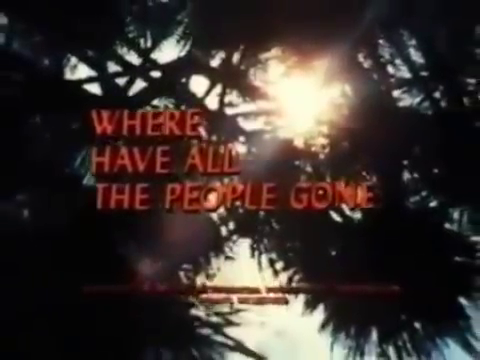
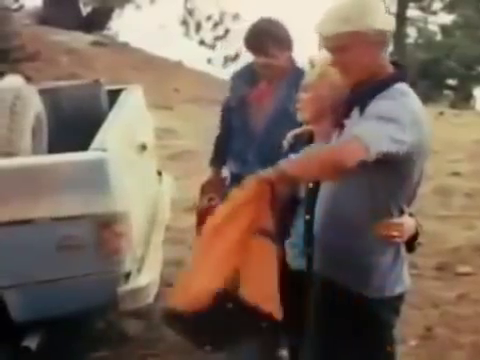
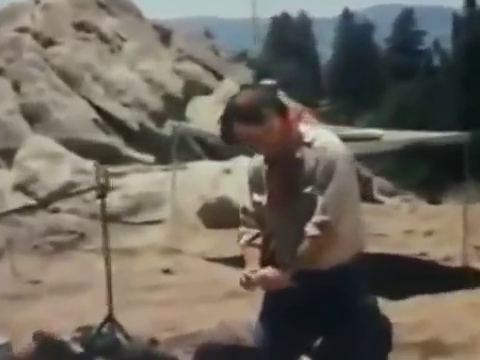
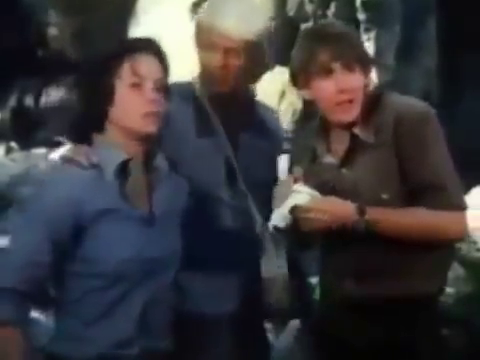
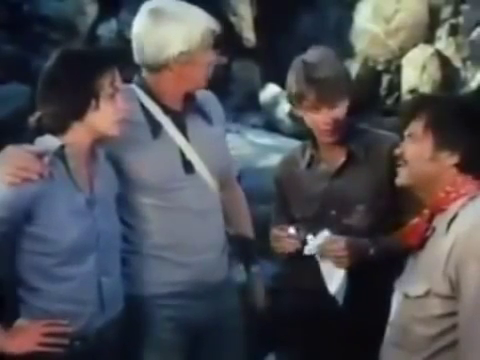
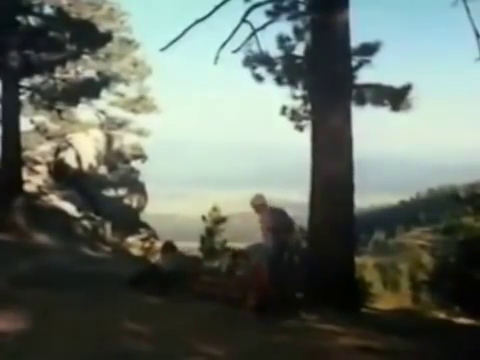
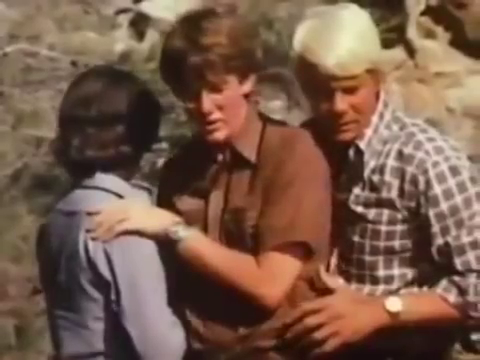
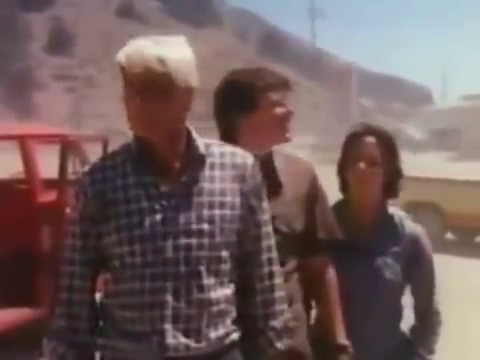
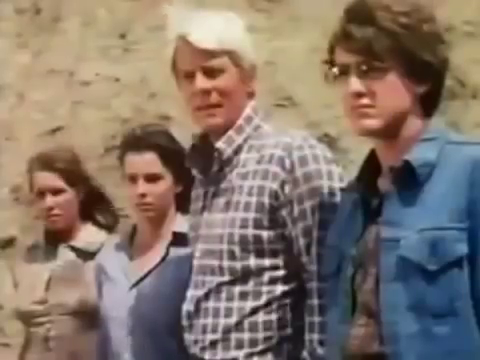
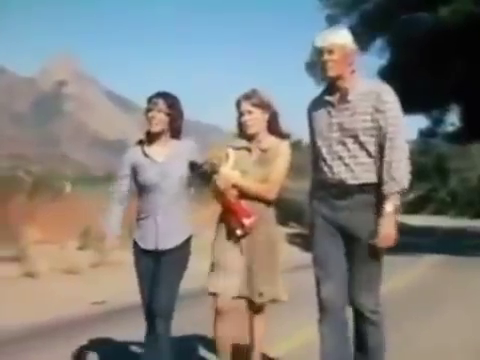
Where Have All the people Gone? (1974)
Film review #513
Director: John Llewellyn Moxey
SYNOPSIS: Steven Anders and his family are enjoying a camping trip in the mountains of California. While Steven’s wife, Barbara, returns home for work, the rest of the family stop and enjoy the remainder of their holiday. While exploring a cave, an earthquake strikes and they head outside to find that some form of solar flare has happened, and they can get no communicate with the outside world. The family head home to try and find Barbara, finding that almost everyone in the world has vanished, leaving only white powder where their bodies once were…
THOUGHTS/ANALYSIS: Where Have All the People Gone? is a 1974 TV movie. The film focuses on Steve Anders and his family, as they are on a camping trip in the Californian mountains. Steve’s wife Barbara has to return home for work reasons, leaving Steve, their two teenage children, and a local farm-hand. The family are down in a cave when an earthquake hits, and they escape to find the farm-hand outside that some form of bright flash happened in the sky at the same time. Unable to get into any contact with anyone, and with the farm-hand suffering what appears to be some form of radiation poisoning, the family try and get back home to Barbara, along the way finding that nearly everyone who saw the flash of light has died and become a heap of white dust. The story is focused around Steve and his family, and the people they pick up and encounter along the way. Initially starting with no answers, they slowly build up theories about what is happening, but their focus is always on getting home to their wife/mother. The film starts off pretty empty, and with characters that are very cookie-cutter and without personality, but slowly, they start to build up some particular responses to what is going on around them, and things start to pay off. The different scenes are a bit hit-and-miss: sometimes they work, sometimes they don’t. As such, the film can feel a bit uneven and disjointed. I don’t think there’s too much original in the film’s portrayal of a world where everyone has disappeared (an idea not unfamiliar to post-apocalyptic films), but it also avoids the common depictions of post-apocalypse scenarios by tuning away from global nuclear fallout and focusing on a family drama. Given that this is a TV movie, which typically focus more on entertainment and action, it is a rare example of such a movie that instead takes its subject matter seriously without the frills.
As mentioned, the characters are very much plain, stereotypical cut-outs, but they do start to grow a little as the film goes on. Steve keeps his family together, while his son David is a science-based person, who unravels a little as the film goes on. Deborah doesn’t really have too much to do other than do some occasional narration (which doesn’t add too much), and the characters of Jenny and Michael, whom the family they pick up along the way, have small, but interesting character arcs that adds something of substance. By the end of the film, there’s some good dialogue and twists that have cohered the characters into a good unit, but they never fully shake off that mould from which they begin.
The open-ended nature of the film leaves us with no real answer about the state of the world and it’s survivors: all we know is about are the characters we travel with, and who they encounter, which says very little. This isn’t necessarily a bad thing, but might not be for everyone who might want the journey to have a more substantive pay-off. When we are given explanations to what is going on, the science seems a bit far-fetched, such as people being turned into white dust being caused by a large solar flare and a particular dominant gene is a bit much the more you think about it. Again, like most things in this film, if you don’t think too much about it and focus on the characters and the depiction of the post-apocalyptic world, you have something that is mildly interesting to watch, if you give it a chance to get going. It’s nothing mindblowing or groundbreaking, but there’s some competency at work that brings the film together. In terms of TV movies, you can do worse, but you can certainly do better.
-
#472 – Ancient Relic (2002)
Ancient Relic (2002)
Film review #472
Director: Sebastian Niemann
SYNOPSIS: At an archaeological dig site in Israel, archaeology student Steffan Vogt stumbles upon an unbelievable discovery: a 2000 year old skeleton that has a metal implant, and the instruction manual for a video camera that has not been commercially released yet. Alongside it, a note detailing the existence of a video recording made of Jesus Christ when he was crucified. While most of the crew believe it to be some form of hoax, Steffan believes that the only possible explanation is a time traveller that went back into the past to film the momentous occasion. When a secret order starts to take control of the dig and silence anyone that knows about this discovery, Steffan teams up with Sharon and Joshua, who were also at the dig site, to uncover the truth about what is happening, before they too are silenced…
THOUGHTS/ANALYSIS: Ancient Relic (Also known as The Hunt for the Hidden Relic, or The Jesus Video) is a German 2002 TV movie based on the novel by Andreas Eschbach. The opening of the film shows an archaeological dig site in Israel, where one of the students at the site, Sebastian Vogt, accidentally stumbles upon a burial site that’s full of mystery: a 200-year old skeleton that has signs of being form the present, such as a metal splint on his legbone, and the instruction manual for a video camera. Most of the archaeologists believe it is some form of hoax, but Steffan believes that the only possible explanation is that it is the work of some time traveller. A handwritten note accompanying the skeleton suggests that they actually videotaped the crucifixion of Jesus, which would be irrefutable proof of his existence. When Steffan tries to investigate further, he is shut out by a mysterious group who arrive and take control of the discovery. Steffan tries to sneak in and get more information, but starts to be hunted by this group as apparently he now knows too much. Steffan goes to fellow archaeologists Sharon and her fiancée Joshua, and the three attempt to unravel the mystery and find the video camera before they are killed. The plot is pretty typical conspiracy, ancient order, religious stuff; with secret groups trying to get a hold of the supposed video recording of Jesus as it would apparently be a weapon of such power, that if it disproved the existence of Jesus, western civilisation would simply collapse. I think that’s a bit of an overstatement, as I’m sure people that didn’t want to believe evidence that doesn’t fit their worldview can just call it a hoax and move on. Most of the elements of the story are left pretty vague, including these ancient orders and what they actually do. It’s probably something that’s more fleshed out in the book, but instead this film just opts for constant chase scenes and stalking that never really goes anywhere, and never arrives at the interesting bits, such as actually seeing the content of this recording, which is saved until the very end, and reveals a “surprise” twist that is entirely predictable, and just leaves open more questions that it answers.
The characters are all pretty uninteresting. Steffan just a young, well-built lead that can do all the action sequences and take a lot of cuts and bruises. His opening trait that he is an atheist doesn’t really play much of a part in the story, although obviously as the whole “Jesus video” thing starts emerging, he starts to question his atheism in a very predictable fashion. The love triangle between Sharon (the only female character), her fiancée Joshua, and Steffan is entirely without note, and again very predictable. The villains are basically henchmen of this secret organisation, and are never given any character development, or motivation, because we never get a clear sense about the purpose of this organisation.
As mentioned, we don’t see the contents of the video recording until the very end, and as a pay-off it doesn’t really deliver something satisfying that required nearly three hours of build up. The aspect of time travel is barely explored, and only explained through exposition and recordings that have no direct effect on what’s happening on-screen. The whole idea of a camcorder recording Jesus also seems a bit unbelievable, particularly it’s being able to work two thousand years later. The most notable aspect of the production is the English dubbing, given that this was originally a German production: The dubbing is terrible, and none of the voices have any real emotion or direction, which is constantly distracting from any drama on screen. Overall, Ancient Relic has an interesting story and fits into that genre that the Da Vinci Code really popularised. It is however, not a great example of the genre: the organisations and conspiracies are intangible and don’t really connect to anything specific, the mystery is very generic, and the pay-off isn’t worth it. I’m sure the novel is a lot more interesting than this poor adaptation, and I would suggest checking it out if you like these sorts of stories, because this film adaptation won’t satisfy.
